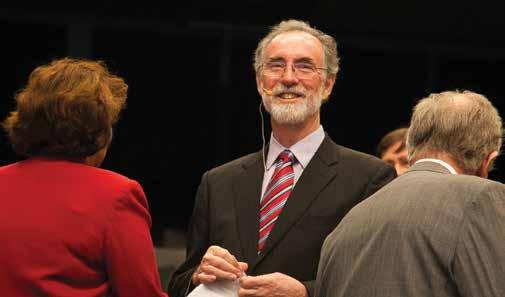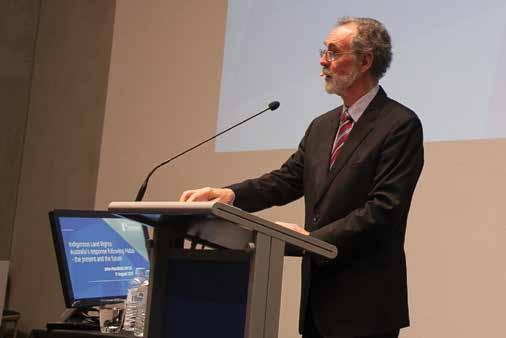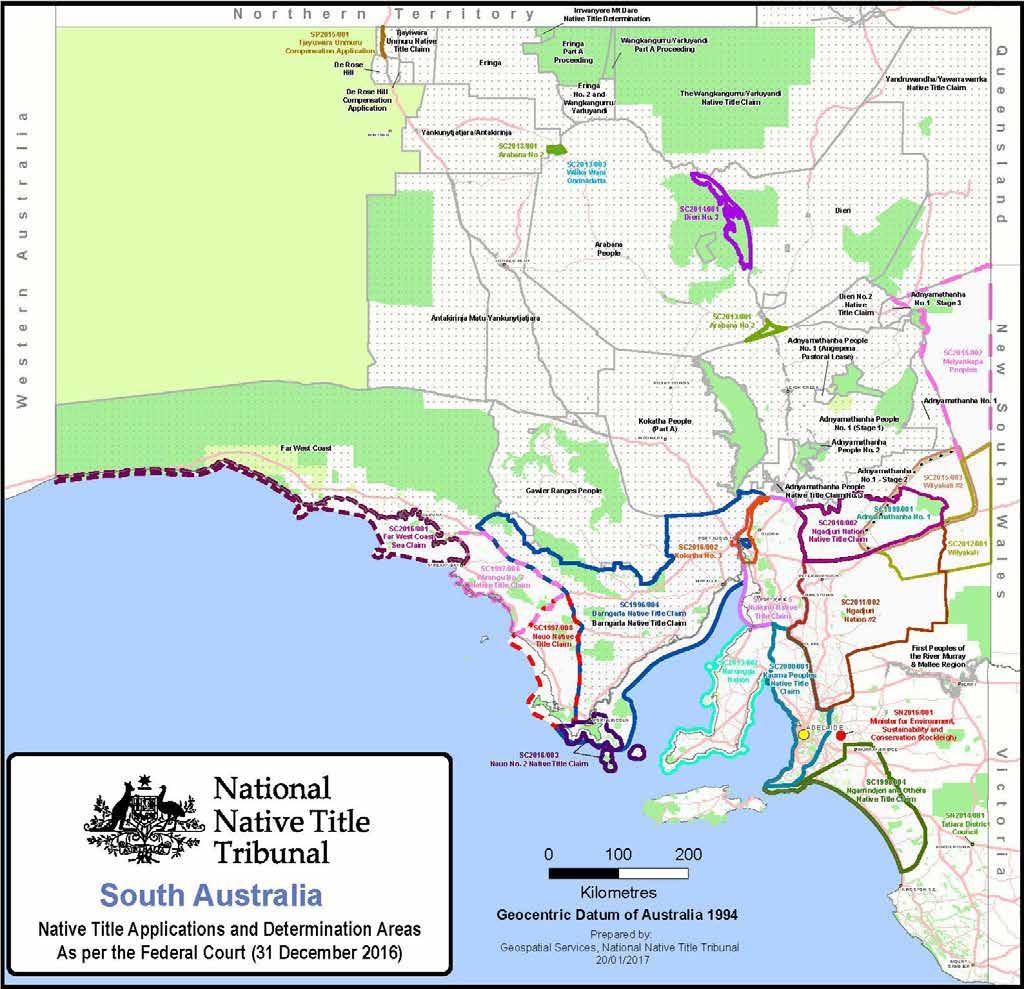
5 minute read
Looking ahead for native title
With a growing percentage of Australia now subject to determined native title, remaining applications face real challenges, according to retired Justice John Mansfield.
At the Inaugural Mansfield lecture created in his honour, Justice John Mansfield recounted a history of native title in Australia reflected on the challenges ahead.
Advertisement
He said that a central challenge for Aboriginal people now in proving continuity of connection with their land was the passing of time.
“If you go back twenty or thirty years, there were a whole lot more people who remember, because they were taught by their parents, the stories and the traditions and the relationship with land. And you go back fifty years, there was so much more.
“Now we’re another two generations away, if we haven’t taken the step of preserving the stories of those older people, younger people to a degree struggle in some respects, to tell the stories, to remember the things which they learnt, or the learning doesn’t happen for them.
“So the courts and the anthropologists have to understand that difficulty and be sympathetic to recognising that it still reflects a traditional connection with land” he told Aboriginal Way.
Retired Justice Mansfield said that the second challenge for native title continues to be resourcing.
“Every claim has to be supported by an anthropological report that reports the evidence and does the genealogy to show the necessary continuity and that’s not something that the court can control, or anyone else, that’s just a matter of doing the work, through groups such as SANTS.
“It’s going apace, South Australia’s probably as well placed if not better placed than most others, there’s several claims to go, but not an intimidating number, so administratively the problem is simply applying the resources to be able to progress the claims” he said.
In the lecture at UniSA, Justice Mansfield recounted the history of recognition of Indigenous land rights, beginning with the assumption of Terra Nullius in 1788. He briefly spoke of the major steps that had led to the Native Title Act.
He spoke of the Yirkala Bark Petition to Federal Parliament in 1963, where people opposed the establishment of a Bauxite Mine on their country and about the 1966 The Wave Hill Walk Out, where Aboriginal stockmen went on strike against their wages and conditions.
The 1967 referendum was an important milestone in recognition of Indigenous rights in general, he said “It was a big step and the fact that it was so late was shameful”. The Gove Land Rights Case in the Northern Territory was another significant development that grew from opposition to mining on country. The case ended in 1971 when Justice Blackburn dismissed the case due to the principle of Terra Nullius.
Justice Mansfield explained that the Gove case led to the 1973 Woodwood Royal Commission, and that drove the introduction of the Aboriginal Land Rights Act of the Northern Territory, “a very significant piece of legislation, but confined to the Northern Territory because that was the only area that the Commonwealth had the power to legislate on that topic”.
“What it did was to say that where there is unalienated Crown Land, if the Indigenous people could establish that they were the traditional owners, the Land Commissioner could recommend to the government that the grant of that land be made to those traditional owners”.
“That was very successful and now something like 50% of the Northern Territory is Indigenous owned” he said.
The Racial Discrimination Act (RDA) which required equal treatment for all Australians, including in the ownership of land, was introduced at the same time as the Land Rights Act.
In 1981 South Australia passed its APY Anangu Pitjantjatjara Yankunytjatjara Act – “giving in effect the top left hand corner of the state to those people”.
Justice Mansfield said that other than that APY Act, the Land Rights process
was ignored by other states until the Mabo Case.
Eddie Mabo was a traditional owner of the Murray Islands in the Torres Strait. He wanted to claim ownership of his own country. He was in a better position to do that than many in the mainland, because there wasn’t that type of acquisition in that area Justice Mansfield pointed out.
In the ten years that the case ran, the Government of Queensland tried twice to frustrate the Mabo case. Firstly it tried to compulsorily acquire the land. That was found to be not allowed under the RDA. The Queensland Government then challenged the validity of the RDA unsuccessfully.
The Government then passed an act to wipe out any ownership of land in the Torres Strait. In 1988 in the case Mabo #1, that was declared invalid.
It was after that the final Mabo Case took place, first in Queensland then in the High Court, in one of its most significant judgements – Australian law was declared to recognise Indigenous communal interests in land, subject to the radical title of the Crown
The Mabo #2 case was decided in 1992.
“If you read the Mabo Judgement you will see how vehemently the Judges expressed and appeared to understand the nature of that relationship with country” Justice Mansfield said.
That decision led to the introduction of the Native Title Act and recognition of native title in Australia. SOUTH AUSTRALIAN NATIVE TITLE SERVICES

Level 4 345 King William Street ADELAIDE SA 5000
Editor Keith Thomas
Communications Officers Lucy Kingston Kaliah Alice
Designer Alison Fort
Advertising Enquiries (08) 8110 2800
Circulation 10,000
If you have any stories of interest to our readers, please address any correspondence to:
editor@nativetitlesa.org
Aboriginal Way South Australian Native Title Services Level 4 345 King William Street ADELAIDE SA 5000
Ph: 8110 2800 Fax: 8110 2811 FREECALL: 1800 010 360
The Editor has the final decision on all stories and advertising that appear in this publication.
w w w.nativetitlesa.org

Get Aboriginal Way
Individuals or organisations can request free copies of this publication. Complete the form below and mail to 4/345 King William Street, Adelaide 5000 or email details to editor@nativetitlesa.org Name: __________________________________________________ Address: ________________________________________________ _________________________________ Postcode: _____________ Phone: __________________________________________________ Email: __________________________________________________ No. of copies: ____________________________________________
ISSUE 68
www.nativetitlesa.org
Radio program Aboriginal Message…
…airs each week on Wednesday at 3.30pm on 101.5FM in Adelaide. If you have an interesting story or event that you would like to share on radio, please contact Lucy Kingston on (08) 8110 2800 or email aboriginalmessage@nativetitlesa.org Listen online at http://radioadelaide.org.au/tags/aboriginal-message/




